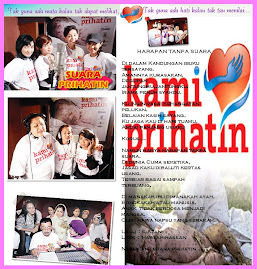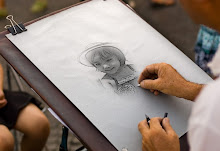Thursday, August 28, 2008
WHY ARE 'MAMA' & 'DADA' A BABYS FIRST WORD ?
A baby's first words are often "mama" and "dada," much to the delight of parents. Now scientists think they know why.
Beyond the obvious - Mommy and Daddy are around a lot and babies are drawn to them - languages in many cultures have apparently made the task easy by creating words for mothers and fathers that feature patterns of repeating sounds, a new study suggests.
To arrive at this finding, brain scans were made of 22 newborns (age 2 days to 3 days) while they listened to recordings of made-up words. They heard words that end in repeating syllables, such as "mubaba" and "penana," as well as words without them, such as "mubage" and "penaku."
Brain activity increased in the babies' temporal and left frontal areas whenever the repetitious words were played. Words with non-adjacent repetitions ("bamuba" or "napena") elicited no distinctive responses from the brain.
This suggests "mommy" and "daddy" are well-chosen words to teach a baby, and it also indicates that the ability to more easily recognize these sorts of repetitive sounds is hard-wired in the human brain.
The research, led by University of British Columbia post-doctoral fellow Judit Gervain, was published online this week in the journal Proceedings of the National Academy of Sciences.
"It's probably no coincidence that many languages around the world have repetitious syllables in their 'child words,'" Gervain said, citing "papa" in Italian and "tata" (grandpa) in Hungarian as examples.
"The language center of most right-handed adults is located on the left side of the brain," Gervain said. "This is consistent with our finding with newborn babies and supports our belief humans are born with abilities that allow us to perceive and learn our mother tongue systematically and efficiently."
"The brain areas that are responsible for language in an adult do not 'learn' how to process language during development, but rather, they are specialized - at least in part - to process language from the start."
Beyond the obvious - Mommy and Daddy are around a lot and babies are drawn to them - languages in many cultures have apparently made the task easy by creating words for mothers and fathers that feature patterns of repeating sounds, a new study suggests.
To arrive at this finding, brain scans were made of 22 newborns (age 2 days to 3 days) while they listened to recordings of made-up words. They heard words that end in repeating syllables, such as "mubaba" and "penana," as well as words without them, such as "mubage" and "penaku."
Brain activity increased in the babies' temporal and left frontal areas whenever the repetitious words were played. Words with non-adjacent repetitions ("bamuba" or "napena") elicited no distinctive responses from the brain.
This suggests "mommy" and "daddy" are well-chosen words to teach a baby, and it also indicates that the ability to more easily recognize these sorts of repetitive sounds is hard-wired in the human brain.
The research, led by University of British Columbia post-doctoral fellow Judit Gervain, was published online this week in the journal Proceedings of the National Academy of Sciences.
"It's probably no coincidence that many languages around the world have repetitious syllables in their 'child words,'" Gervain said, citing "papa" in Italian and "tata" (grandpa) in Hungarian as examples.
"The language center of most right-handed adults is located on the left side of the brain," Gervain said. "This is consistent with our finding with newborn babies and supports our belief humans are born with abilities that allow us to perceive and learn our mother tongue systematically and efficiently."
"The brain areas that are responsible for language in an adult do not 'learn' how to process language during development, but rather, they are specialized - at least in part - to process language from the start."
Subscribe to:
Post Comments (Atom)



























No comments:
Post a Comment